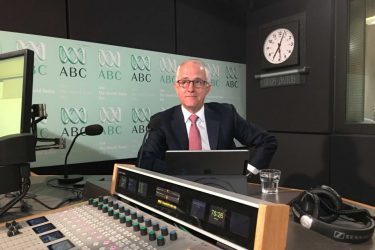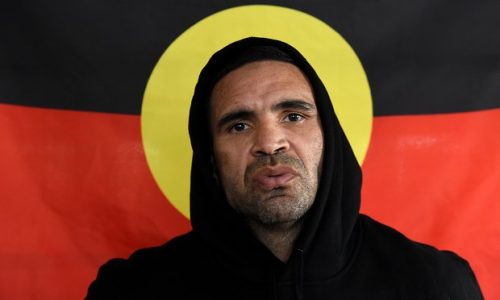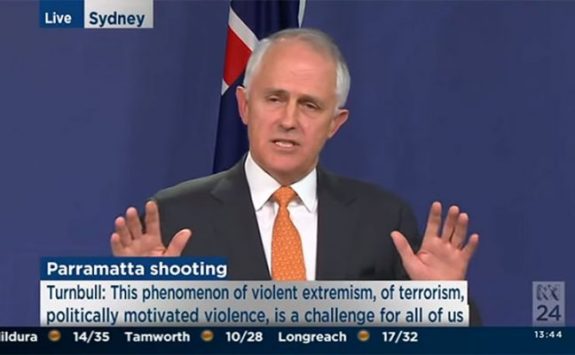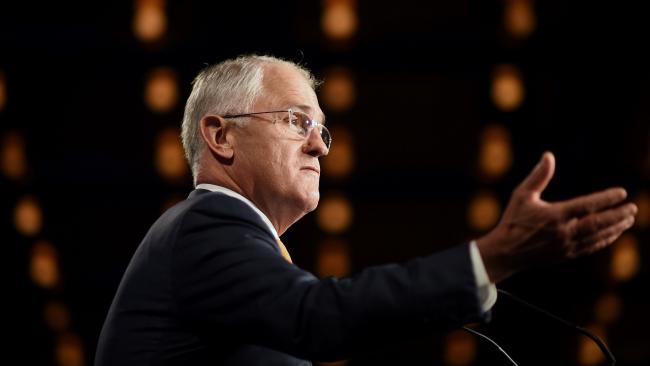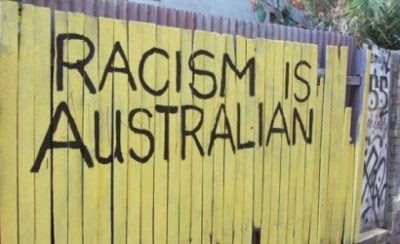Do I really want to tackle this?
I am going to have to go. I find it quite a difficult subject to fully get my head around, with a lot of emotional responses. More than normal, I would ask that readers keep the words from this article in context and read the whole piece before making a judgement. Perhaps understandably this topic tends to get grossly oversimplified for the most part. I am going to try to treat the issue (and by extension those of you reading this) with a bit more respect. But it is a really big topic too, so apologies if I don’t go into full detail with a few areas or omit a few elements of the debate that I think of as a bit more peripheral.
Whilst I abhor the Islamaphobic rhetoric that spews from far right mouthpieces like Andrew Bolt, I am not going to try to claim that there isn’t a problem with violent extremist groups and Islam at this point in time. The number of attacks sponsored or inspired by Muslim extremist groups such as ISIS and Boko Haram is too great to be waved off flippantly and I would argue it is not racist or irrational to be concerned about the possibility of terrorism by Islamic extremists in this country. Much as it is an admission I don’t like making, in order to maintain credibility in a complex issue like this, it is vital one consider all facts fairly, not focus on just the ones that support your preferred narrative (someone should really mention this to Pauline Hanson).
And even though millions of Muslims have publicly stated that groups like ISIS are not true Muslims and 70000 Islamic imams have issued a fatwa against terrorist groups including IS, if the groups perpetuating many of these attacks are identifying themselves as such then it becomes a common factor that people will look at.
So yes, I am saying there appears to be a problem of violence and extremism associated with Islam, but don’t group me with Sonia Kruger. There are a number of aspects to this debate that need to be looked at this more closely.
Is Islam an inherently violent religion?
It seems like right now a week doesn’t go by without a shooting, stabbing or suicide bomb somewhere in the world. And a lot of them are reported as either financed, executed or at least inspired by groups like ISIS. This is not sufficient evidence alone to conclude that Islam is a violent religion. As Barnaby Joyce, of all people pointed out, Islam doesn’t have the mortgage on terrorism. In the recent past, the world has suffered the existence of many terrorist groups of diverse ideologies, including the IRA (Catholics), The Stern Gang (Zionists), Bahder-Meinhoff (Marxists) and ETA (Basque separatists). To say Islam is a religion that promotes violence based solely on the actions of an extremist minority is as nonsensical as anyone making the same claim about Christianity, Judaism or Buddhism.
Given the carnage and violence we see so regularly, I would consider any well-structured argument that there is an inherent bias for violence in the teachings of Islam. But I haven’t seen any yet. If you want to convince me there is, you will have to do better than cherry-picking passages from the Quran. As a number of people have demonstrated in some detail, if the same approach was taken with the Bible we could just as easily brand Christianity a violent religion. There is, of course, more to any religion than its book of faith. The interpretation of the ancient writings by its senior custodians is what guides most followers. And while Islam has its share of high profile hate-preachers, so too does Christianity. Let me again repeat the statement about the 70000 imams that signed a fatwa against terrorism. I’m quite happy to overemphasise this point, as our irresponsible media has given it almost no coverage.
The Media
It is also worth noting the role our somewhat parasitic media organisations have on this debate with their cynical exploitation of our fears. There are hundreds more shootings, stabbings and other brutal crimes happening all over the world that get very little or no attention, but the moment one occurs with a perpetrator who can be connected with Islam or the Middle East in particular, it is big news. This gives a completely false and exaggerated impression about the threat posed by Muslims within a society compared to other religious or ethnic groups.
Moreover, their perversely detailed coverage of the carnage is not only an advertisement and almost a celebration of the terrorists’ strength. It also feeds the disproportionate fears, (which leads to anger and hate in what Yoda would describe as a clear path to the dark side) in western communities. Star Wars jokes aside, it is pretty obvious that a more mature coverage of these atrocities would reduce the level of racial hatred in the community.
Inequality
The elephant in the room in any discussion of this issue (unless George Christenson is in the room, in which case it’s him – I’m not usually one for personal jokes like that one, but Christensen has made it quite clear that he thinks bullying is fine with his comments on the Safe Schools debate, so now he is fair game as far as I am concerned) is inequality. I am a big believer in individual accountability, so I am a little cautious making this point. I would hate for this to be interpreted as any kind of tacit condonation of the violence of terrorism. Nonetheless, inequality, ghettoization and radicalisation go hand in hand all over the world so have to be recognised.
Every insurgent militant group in history has probably viewed itself as being oppressed and disadvantaged. This is where religion does become a problem because a perversion of religion is being used so successfully to offer solace to many who are unhappy (oddly enough, by recruiting heavily from the disadvantaged, the uneducated and the fearful, Islamic terrorists have more in common with far right conservatives than either group would admit). Having little to lose and, in their minds, a noble cause and a purpose can inspire a powerful resolve. It also connects those looking for a cause with the suffering of oppressed Islamic groups within the world.
The vehicle of oppression need not be violence or force either. It can also be perceived (and it is often perceptions that count more than reality) as economical, political or cultural. This is a powerful contributor to violent extremism and is valuable for terrorist recruiters And it is vital that we understand that every time we make a kneejerk fearful response that targets Muslims (campaigns to ban burkas and mosques, register Muslims, restrict immigration, etc) we are contributing to this sense of oppression.
So yes, in the current climate, Muslims are probably more likely to be radicalised than other religions, but every increasingly fascist step we take to further marginalise and dehumanise them to appease our fears increases this likelihood and thus makes us less safe, not more. I will say again, terrorists make their own choice and don’t get to blame anyone else for their crimes, but when we know (remember when ASIO personally contacted senior Abbott ministers to ask them to tone down their rhetoric) our actions can increase the likelihood of radicalisation and terrorism, we have to think carefully before we act.
Mental health
I just want to quickly mention mental health too. To my mind, anyone – regardless of race or religion – that is moved to carry out some kind of mass casualty attack on innocents, would have to raise a few red flags about their mental health. Certainly, anytime a non-Muslim is involved (Dylan Roof or Micah Johnson for example) in terrorism, mental health is offered as a primary explanatory factor. Why is it almost ignored as a factor for terrorists who happen to be Islamic?
I should add here, mental health is rarely an excuse for actions that are wrong. Most people dealing with these kinds of issues do so without committing crimes or atrocities. But when an attack is carried out by someone with poor mental health, it does weaken the argument that it is their religion not their psychosis that is driving factor in the behaviour.
In the preceding paragraphs I mentioned the issues of inequality and this has a compounding effect when you consider the role of mental health because those who live in poverty who are more easily radicalised, also have less access to mental health support. Moreover, the millions of displaced refugees (a significant proportion of whom are Muslim) who have experienced unspeakable trauma are obviously at higher risk of mental health. So from this perspective also, there probably is a greater chance that someone from a Muslim community could be, but their religion is not what is driving this. It appears to be a correlated but not causative factor.
What will I say if terrorism strikes in Australia?
The lack of successful terrorist operations on Australian soil to date does not mean we are not under threat. Our federal counter-terrorism forces are an important factor in keeping us safe and need to be properly resourced. But one day my message of tolerance and acceptance towards the vast majority of peaceful Muslims may be proved ‘wrong’ and Australia could be the victim of a major terrorist attack (for the record, despite what certain vested interests would have you believe, Man Haron Monis was less a terrorist than a violently unstable man with little religious motivation). I will actually go as far as to say I think it is quite plausible that this will happen. How will I feel then?
Well quite obviously I will be saddened and angry, as we all should. There will be a few bigots out there who can barely contain their perverse glee at being ‘right,’ but I imagine the vast majority of Australians will react with the same horror. Of course I tend to be saddened and angered whenever I hear about violent crimes and other avoidable tragedies, but I also realise that sadly they do happen.
We don’t give up cars, despite the thousands of deaths and injuries on our roads every year and the anguish they cause. And quite rightly so. We don’t want to give up our mobility as it would impact on our economy and our quality of life. So we accept the risk that comes with them, even knowing the heartbreak this inevitably includes.
In the same way, it is not worth giving up our humanity and empathy for others to try to reduce the risk of Islamic terrorism to zero, especially when we could still be the victim of violent crime in many other contexts. I have empathy for the argument that just one life lost to terrorism is too many, but so too is every cowardly racist assault on Australian Muslims, and these become more prevalent when society accepts the narrative that Muslims are a threat we must fear. I also suspect one of the reasons our appalling offshore detention regime still enjoys fairly broad support is exploited fears around unchecked migration and terrorism.
Conclusion (if you could call it that)
There are a lot of bad people in the world and quite a few of them are Muslim, but many aren’t (Peter Dutton, I’m looking at you). Barnaby Joyce can see it. My 12-year old students can see it. The rest of us need to see it too. Right now there appears to be more terrorism by individuals and groups associated with – or motivated by – extreme Islamic ideology. This results from a wide confluence of factors, including the geopolitical situation, extreme inequality and almost universal western cultural hegemony. But it is important to note the risk is less than portrayed in the media.
All of this notwithstanding there is an elevated risk and I will reiterate that those who have concerns about this are not necessarily racist or stupid. But these concerns do not legitimise actions that are racist or stupid, such as demonising all Muslims. Aside from the fact that this is morally indefensible, it is also counterproductive, as it widens and entrenches the cultural divide that we need to overcome. I have said elsewhere it is not necessarily what we believe that defines us, but how we act on those beliefs. So let’s act intelligently.
Quick fixes to systemic problems rarely work out well. If a building has a structural problem, you need to fix it at the structural level, not just paint over the cracks. The same is true for a society. Making restrictive laws that target Muslims is at best painting over a crack, if not jackhammering into it. The structural problems in our society of why people can be radicalised will need to be addressed slowly by breaking down the fear and mistrust and engaging across cultural borders. To make this work we really need to get people like Pauline Hanson to shut up.
This article was originally published on the Quietblog.
Like what we do at The AIMN?
You’ll like it even more knowing that your donation will help us to keep up the good fight.
Chuck in a few bucks and see just how far it goes!
Your contribution to help with the running costs of this site will be gratefully accepted.
You can donate through PayPal or credit card via the button below, or donate via bank transfer: BSB: 062500; A/c no: 10495969

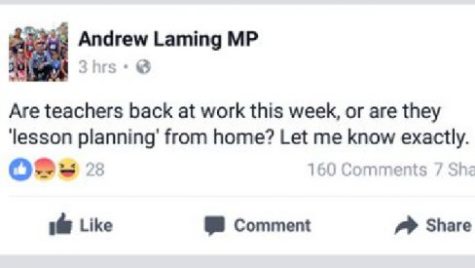










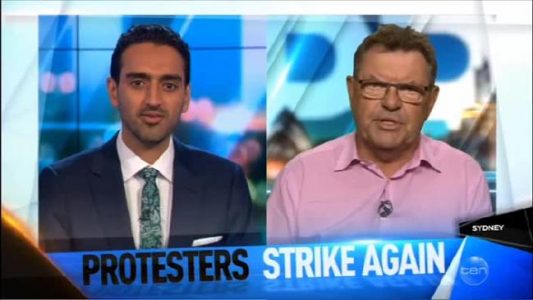
 Is he for real? The only time LBTI advocates are heard from is on LGBTI issues such as
Is he for real? The only time LBTI advocates are heard from is on LGBTI issues such as 